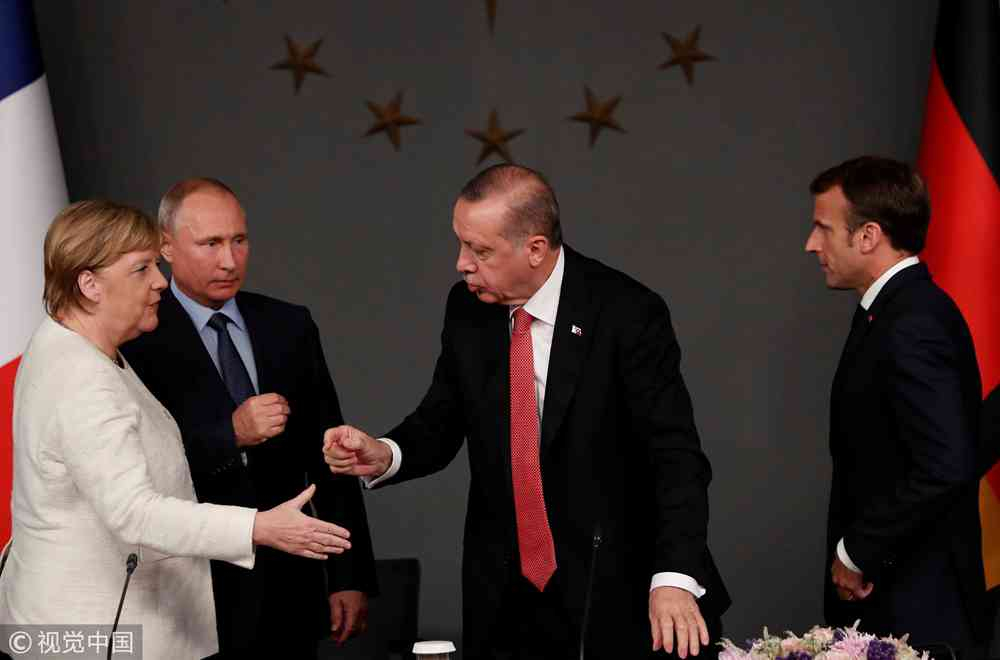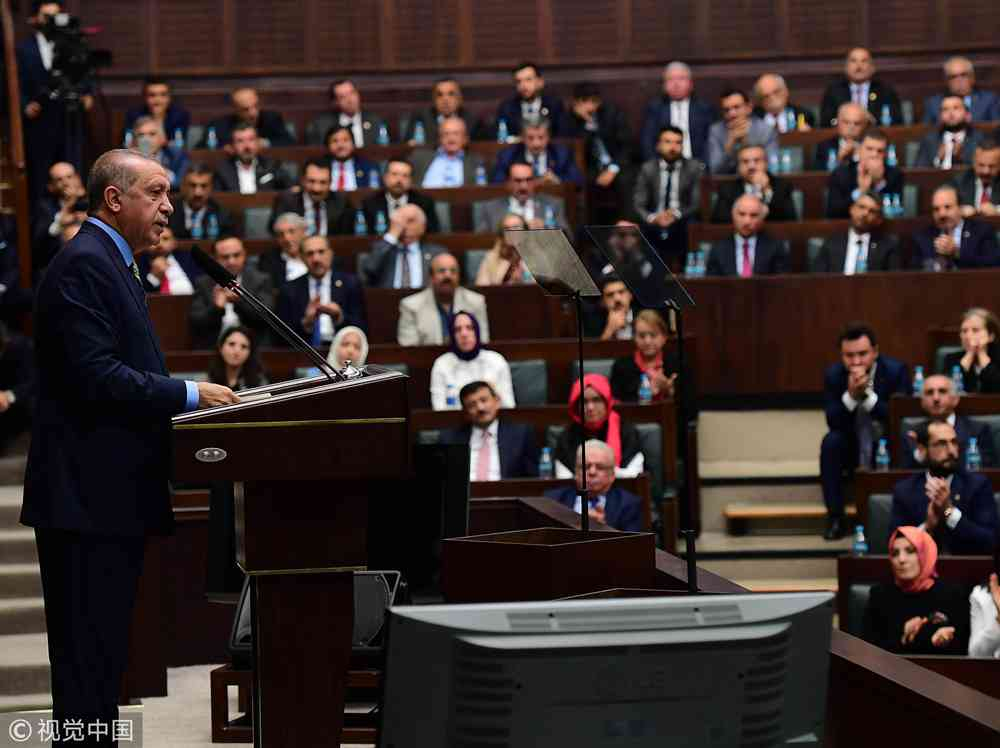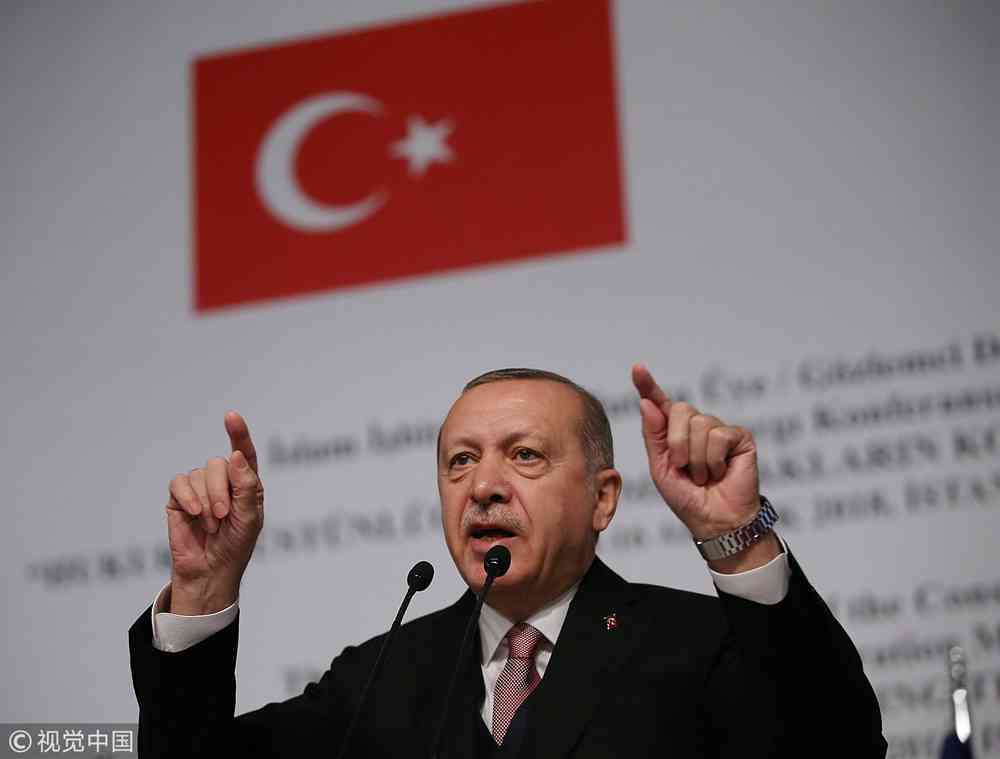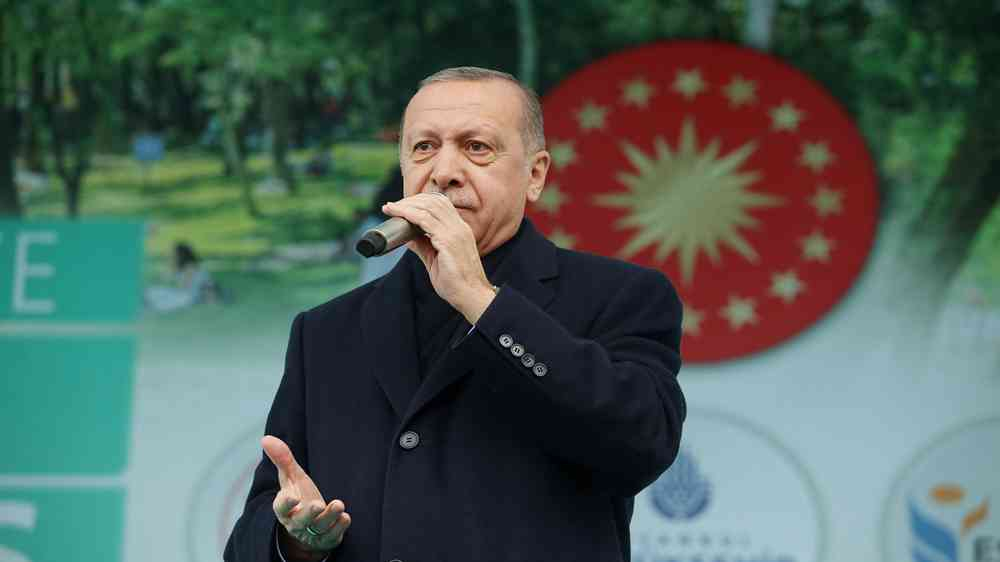Turkish President Recep Tayyip Erdogan was hardly out of the headlines in 2018, not only consolidating his power at home, but also establishing himself as a key broker in the Middle East and ensuring he remained front and center in one of the biggest stories of the year: The murder of Saudi journalist Jamal Khashoggi.
In the background, however, a financial crisis brewed and the fallout from a failed 2016 coup continued to be felt.
Highlights
2018 was a big year for Erdogan.
In June, he won presidential elections, granting him a second term in office with expanded executive powers as both head of state and head of government, following a constitutional change last year that also abolished the post of prime minister.
On the international front, Erdogan featured at the forefront of efforts to find a peaceful solution to the conflict in Syria after over seven years of fighting.
He continued to co-chair
the Astana talks with Russia and Iran – held in parallel to UN negotiations – and also hosted the leaders of Germany, France and Russia in October to discuss setting up a constitution-drafting committee for Syria.

Turkish President Tayyip Erdogan (2nd R) meets with German Chancellor Angela Merkel (1st L), Russian President Vladimir Putin (2nd L) and French President Emmanuel Macron at a Syria summit in Istanbul, October 27, 2018. /VCG Photo
Turkish President Tayyip Erdogan (2nd R) meets with German Chancellor Angela Merkel (1st L), Russian President Vladimir Putin (2nd L) and French President Emmanuel Macron at a Syria summit in Istanbul, October 27, 2018. /VCG Photo
Erdogan's collaboration with Russian President Vladimir Putin – although the two leaders back opposing sides in the conflict – meanwhile resulted in the establishment of a buffer zone in the rebel-held province of Idlib.
But perhaps Erdogan's most unexpected contribution came following Khashoggi's murder in Istanbul in October.
Releasing details about the Turkish investigation in a drip-drip fashion, the president ensured the story topped the news cycle for weeks and placed himself squarely at the center of it as a champion of human rights, accusing the Saudi leadership of being behind the killing and even penning an editorial in The Washington Post.

Recep Tayyip Erdogan speaks about the murder of Saudi journalist Jamal Khashoggi during his weekly parliamentary address in Ankara, October 23, 2018. /VCG Photo
Recep Tayyip Erdogan speaks about the murder of Saudi journalist Jamal Khashoggi during his weekly parliamentary address in Ankara, October 23, 2018. /VCG Photo
Low points
For some critics, however, the Syria talks and the Khashoggi affair were just attempts to distract from less positive developments at home.
Turkey saw a massive currency crisis this year, with the lira falling 40 percent against the U.S. dollar.
Turkish authorities also continued to arrest dozens of military and security personnel, as well as journalists, on terror charges and suspected links to exiled cleric Fethullah Gulen, whom Erdogan believes masterminded an attempted coup against him in 2016.
Close to 2,000 people have been sentenced to life in prison over the failed coup, according to Turkish media.
The jailing of a top Kurdish opposition politician meanwhile earned Erdogan a sharp rebuke from the European Court of Human Rights. The president maintains the pro-Kurdish People's Democratic Party (HDP) has ties to Kurdish separatists.
Even on Syria, Erdogan and his partners seemed unlikely to deliver on the constitution drafting committee by the end of the year as promised.

Turkish President Tayyip Erdogan speaks during a conference in Istanbul, Turkey, December 14, 2018. /VCG Photo
Turkish President Tayyip Erdogan speaks during a conference in Istanbul, Turkey, December 14, 2018. /VCG Photo
What's in store for 2019?
The state of Turkey's economy will likely be the biggest test for Erdogan and his government next year, and foreign investors will be watching closely to see how they manage the ongoing crisis.
Analysts have predicted the economy will shrink, or at least grow at a much slower rate than in recent years, which could have an impact on local elections in March.
On regional conflicts and crises such as Syria and Yemen, however, Erdogan will likely remain a key mediator and source of humanitarian aid.

(top left to right) Kim Jong Un, Moon Jae-in, Shinzo Abe, Angela Merkel; (bottom left to right) Recep Tayyip Erdogan, Vladimir Putin, Theresa May, Donald Trump
(top left to right) Kim Jong Un, Moon Jae-in, Shinzo Abe, Angela Merkel; (bottom left to right) Recep Tayyip Erdogan, Vladimir Putin, Theresa May, Donald Trump
This is the fifth article of our “World Leaders” series, which takes a look at eight people who shaped the global political discourse in 2018. These figures dominated the year's headlines through high-profile appearances and maneuvering, forging new relationships and severing old ones. We've published the profiles of Kim Jong Un, Moon Jae-in, Shinzo Abe and Angela Merkel over the past days. Tomorrow we'll focus on Vladimir Putin, who has maintained popular domestic support through his confident diplomatic overtures despite a flagging Russian economy. Stay with us.






